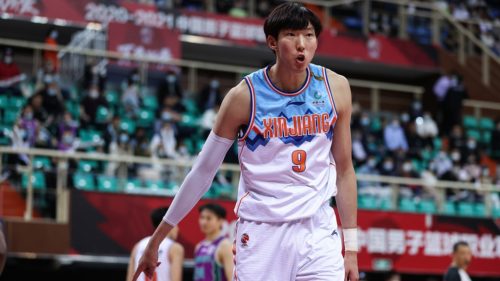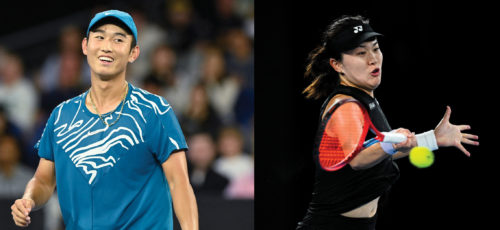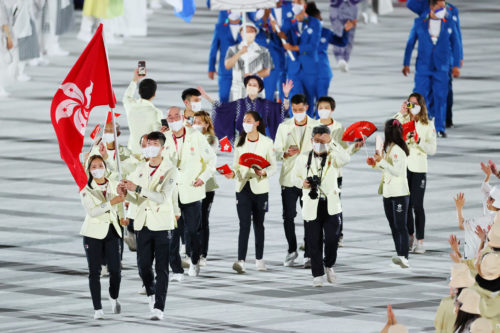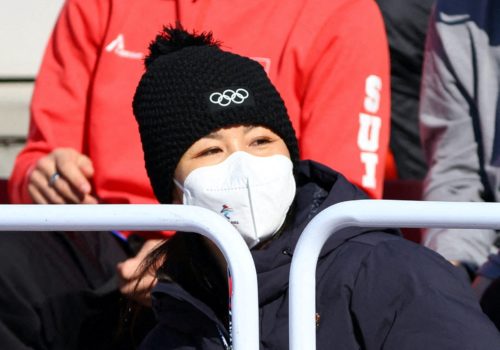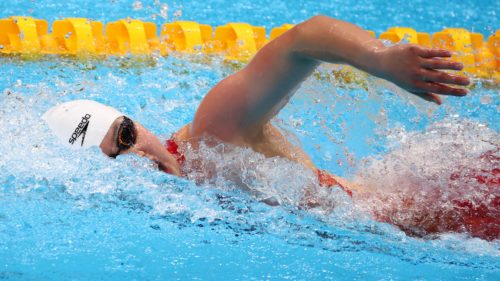NHL China Games 2018: The good, the bad, and the could-be-better
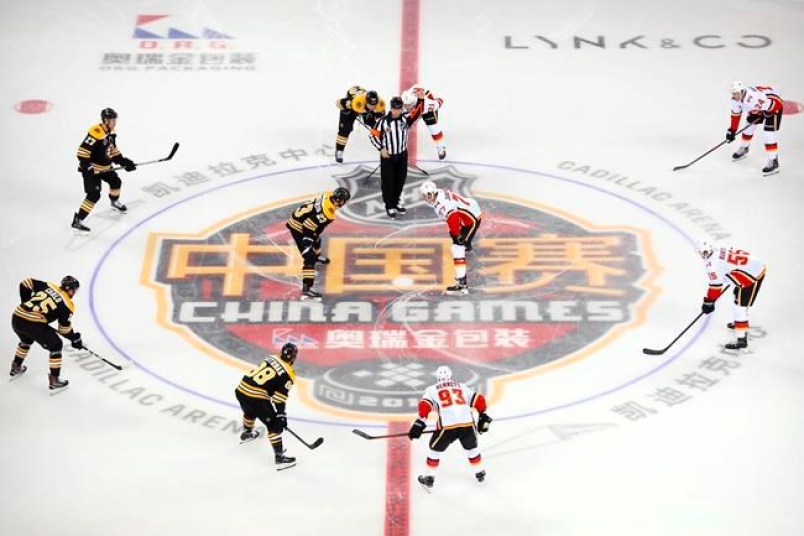
The China Sports Column is a The China Project weekly feature in which China Sports Insider Mark Dreyer looks at the week that was in the China sports world.
A packaging company might not seem like the most likely sports booster, but in the case of ice hockey in China, it might just turn out to be the sport’s savior.
The National Hockey League (NHL) and its Russian rival, the Kontinental Hockey League (KHL), have each made big plays in China over the past week, with the NHL’s Calgary Flames and Boston Bruins playing a pair of matches in Shenzhen and Beijing, while the KHL brought hockey legend Wayne Gretzky to China in an ambassadorial role.
Each had some success, but it was far from smooth. In the background, meanwhile, was the constant presence of ORG Packaging, the Beijing-based manufacturer of metal cans, whose boss Zhou Yunjie just happens to be a massive fan of the sport.
Zhou, now in his 50s, was converted from a youth soccer player into a hockey goalie during his childhood in Beijing, before a trip to Boston’s TD Garden a few years ago rekindled his interest in the game. But Zhou’s canning empire has bankrolled the Bruins, the Washington Capitals, the LA Kings, and the NHL itself as teams and the league as a whole try to make inroads into the promised land — China — ahead of the 2022 Winter Olympics in Beijing/Zhangjiakou. ORG has also partnered with Kunlun — the other main corporate backer of professional hockey in China — to form the KRS-ORG team in the VHL, Russian hockey’s second tier.
The history lesson is important, because for all the inroads that the sport is making in China, some of the missteps have been baffling.
Let’s start with the positives.
Crowds at this year’s NHL China Games were healthy, with the league accepting that getting bums on seat is a far greater priority than focusing on revenues at this very initial stage of development. And the production quality was top notch — not surprising when more than 200 professional players and staff, evenly divided between the NHL and the two teams, make the long trip from North America. That’s fewer than would attend the All-Star game, but it’s still a significant investment.
Blown away by the NHL China Games production. Everyone there got the same as they’d get in the NHL but for two things that always happen at sport in China …
— Jonathan White (@jmawhite) September 15, 2018
As pointed out elsewhere, the lack of alcoholic beverages at the venues and the transport from distant arenas — especially in Shenzhen — don’t help the game-day experience, but there’s little the NHL can do about either of those things. Additionally, while Canadian expats might thirst for a Molson, Chinese sports fans are used to the dry policy at their stadiums, and there’s still plenty of professional soccer teams in China that get full stands regardless.
The second game in Beijing went live on CCTV5 during primetime for the first time (in contrast to previous early-morning screenings on the sports channel, or relegated to the far-less-available sister channel, CCTV5+). And while the viewing figures were probably something around the 10 million mark (on a good day), rather than the 300 million “potential reach” touted by the NHL, that’s still a good sign of progress.
Canadian Derek Dun, an ethnically Chinese netminder, was signed to a part-time contract by the Bruins last week and got the chance to sit on the bench as the team’s third goalie. The Vancouver Canucks did a similar thing in China with Sun Zehao a year ago, and while neither got any preseason game time — let alone even a sniff at the real thing — it’s a smart PR move by the league.
But there are those frustrated at the speed of progress — even state-run China Daily took a swipe this week, saying, “Judging by the mixed signals at Wednesday’s finale of the NHL China Games at Beijing’s Cadillac Arena, you’d never know the clock is ticking on the league’s plan to attract a mainstream following in Asia ahead of the 2022 Winter Olympics.”
Let’s look at some clear improvements that can be made.
First and foremost, the league needs to commit to coming to the 2022 Olympics now. In fact, it needed to commit to going to South Korea in February, too, but screwed that up. The fans want it and the players want it — get it done.
It sounds like it will actually happen this time, despite the bluster from the league, but they will make the players pay royally for the privilege in the next Collective Bargaining Agreement, and so don’t want to tip their hand before negotiations start in earnest. But there’s a cost to that, too. When the owners’ pockets are routinely placed above the health of the game, don’t expect the fans to stick around forever. More specifically in China, the league needs to be promoting its Olympic involvement now — not whenever a deal grudgingly gets done.
Second, hockey promotion in China can’t be a once-a-year thing. The league needs an office in China and needs to be in schools around the country and establishing a presence at the growing number of rinks, too. Progress is apparently being made on that front, but every day without an on-the-ground presence is a lost opportunity.
The KHL, too, needs to have a long, hard look at itself.
The league’s China franchise, now in its third season, has been continually shuttled back and forth between Beijing and Shanghai. Foreign sports fans spit blood when their team plays just one “home” game in a different location, let alone for half a season. Some geniuses probably think that this helps to grow the sport in two markets, not one, but it doesn’t. It pisses off real fans in both cities, and destroys any hope of fostering the thing that’s needed most in China — fan culture.
The KHL’s Wayne Gretzky experiment this month also turned into a fiasco. A fan dinner in Shanghai last weekend was so badly organized that Gretzky reportedly left before the time he was originally scheduled to arrive. Countless photos exist that show him looking distinctly less than happy, though judging by the fact that he skipped his puck drop duties at the NHL game in Shenzhen over irrational typhoon fears, perhaps Gretzky himself could have been in a better frame of mind.
It’s a shame, because with the government support that the sport is getting in China, hockey has a once-in-a-lifetime opportunity to catapult itself into one of the top sporting tiers here. Get it wrong and there won’t be another chance.
The China Sports Column runs every Friday on The China Project. Follow Mark Dreyer @DreyerChina
